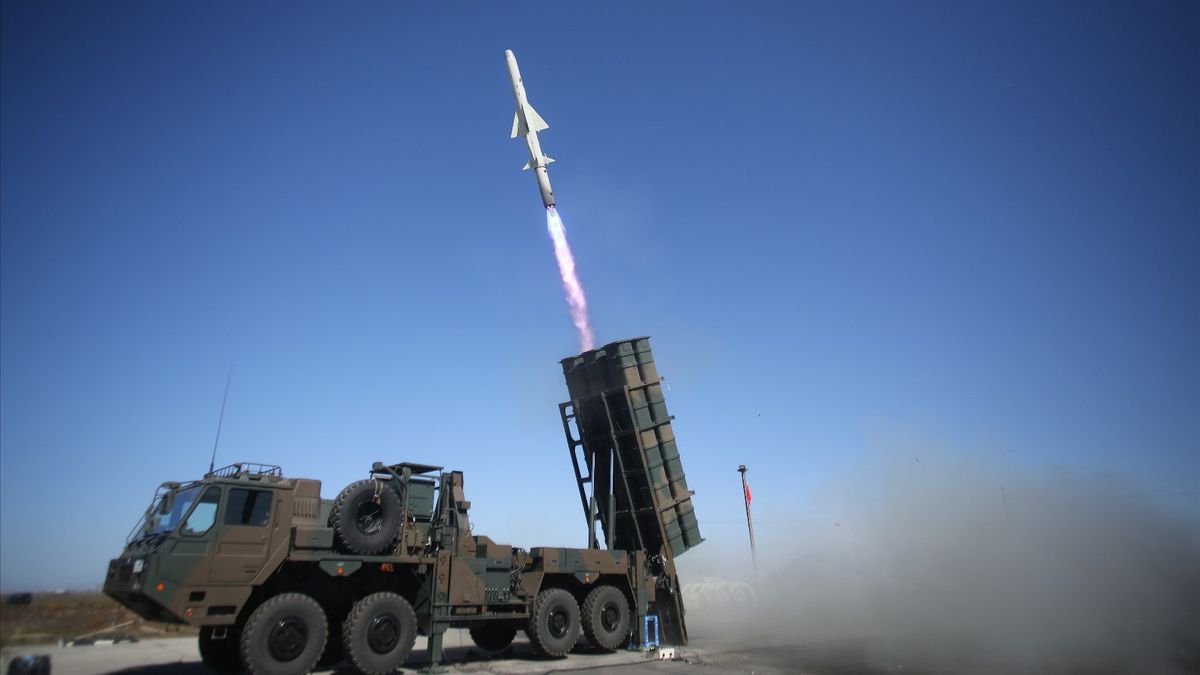JAKARTA - The national security panel of Japan's ruling Liberal Democratic Party (LDP) agreed to propose Japan could have the capability to attack enemy bases for review later this year of its exclusive defense-oriented policy under its war-denial constitution.
Members of the LDP's National Security Research Commission told reporters there was no opposition to the controversial idea of having the ability to disable enemy missiles during a meeting discussing the party's proposal to be made later this month for a revision of the government's national security strategy.
The review of long-term security guidelines coincided with Russia's invasion of Ukraine, which has added to fears China could force reunification with Taiwan. As well as the progress of North Korea's ballistic missile program, it raises doubts about Japan's defense capabilities, which rely heavily on the United States military.
Several panel members asked for words other than "enemy striking ability" to emphasize that such a counterattack is for purely deterrence and defensive purposes, Kyodo News reported April 12.
The LDP appears to want the support of the public as well as Komeito's junior coalition partner, which is wary of acquiring such a capability, for key policy purposes.
Japanese Prime Minister Fumio Kishida said the government would "examine all options."

Last Monday, Japan's Defense Minister Nobuo Kishi said he would consider submitting a larger budget for the next fiscal year to drastically increase capabilities to deal with China's military build-up and North Korea's missile threats.
Minister Kishi said his party was continuing to discuss plans to have the capability to attack enemy bases.
"The defense budget is the main indicator that shows the will of the nation. We want to ensure an adequate budget to drastically strengthen our defense capabilities for the fiscal year up to March 2024," he said.
Japan's defense budget for the current fiscal year ending March 2023 totaled 5.4 trillion yen (44 billion US dollars), hitting a record high for the eighth straight year and up 1.1 percent from the previous year's initial budget. This is an increase for the 10th year in a row, and is equivalent to about 1 percent of the country's gross domestic product.
He said Germany made a policy change to increase defense spending to 2 percent of GDP, the target for each member of the North Atlantic Treaty Organization, following Moscow's aggression on Ukraine.
"Our country should think about (about a similar move) as well," Kishi said.
He said Japan needed to quickly upgrade its defense capabilities, given the deteriorating regional security environment.
According to him, Japan should have capabilities such as attacking enemy bases to increase deterrence, so potential adversaries believe that they must "pay the price to attack."
Minister Kishi added that it would be very costly to pursue only an increase in the ability to intercept missiles, due to North Korea's 'fast developing technology'.
The English, Chinese, Japanese, Arabic, and French versions are automatically generated by the AI. So there may still be inaccuracies in translating, please always see Indonesian as our main language. (system supported by DigitalSiber.id)








